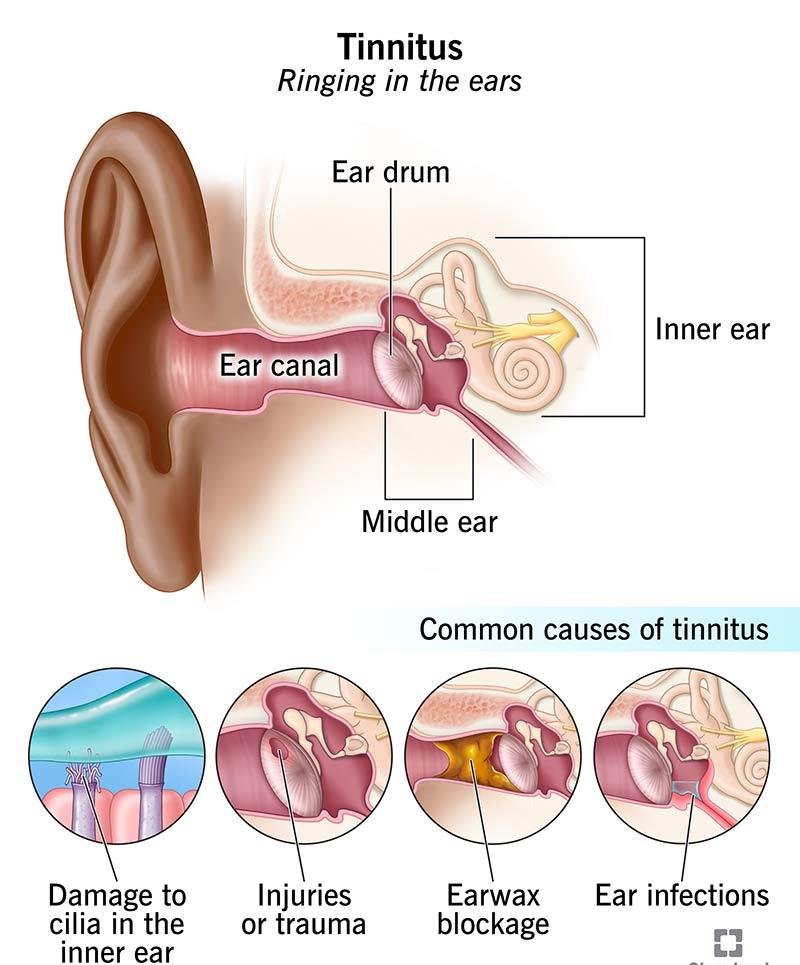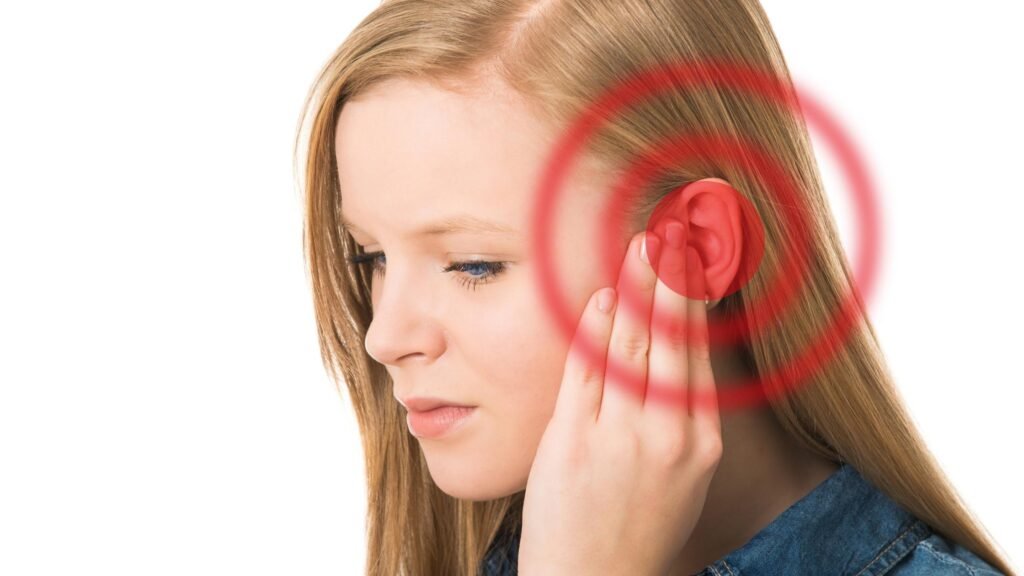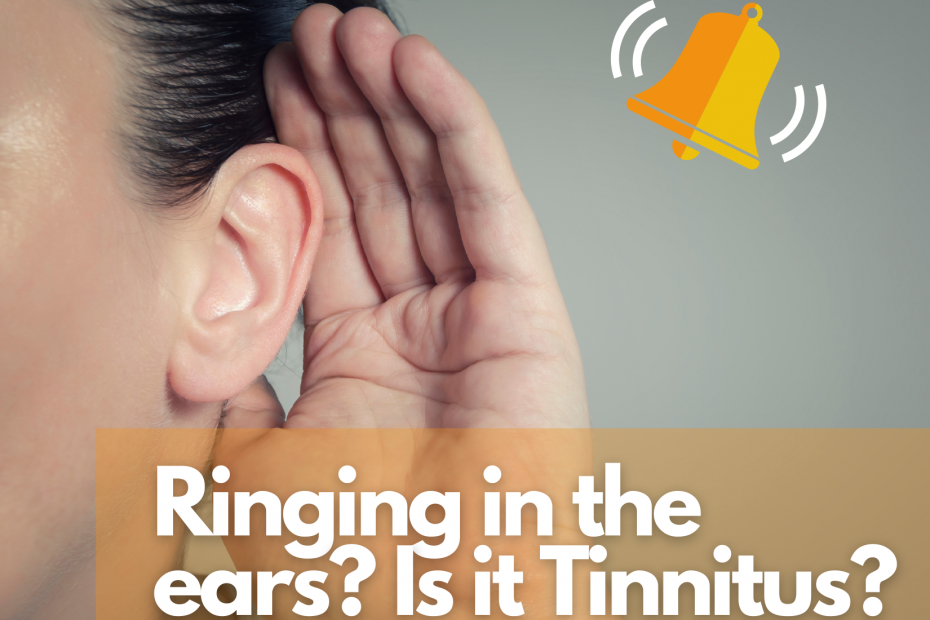Understanding Hearing Aids for Tinnitus: What You Need to Know
Introduction
Tinnitus, commonly referred to as “ringing in the ears,” is a condition that affects millions of people worldwide, including over 50 million Americans. For some, tinnitus is a minor inconvenience, while for others, it can be a significant disruption, making it difficult to concentrate, sleep, or even hear external sounds clearly. One potential solution for managing tinnitus is the use of hearing aids. In this comprehensive guide, we’ll explore what tinnitus is, how hearing aids can help, and what to consider when choosing a hearing aid for tinnitus.
What Is Tinnitus?
Tinnitus is the perception of noise or ringing in the ears when no external sound is present. It can manifest as various sounds, including ringing, buzzing, hissing, or humming. Tinnitus can be continuous or intermittent and can affect one or both ears. For most people, tinnitus is subjective, meaning that only they can hear the sound.

Causes of Tinnitus
Tinnitus is not a disease but a symptom of other underlying health conditions. Some common causes of tinnitus include:
- Hearing Loss: Age-related hearing loss or damage to the ear from loud noises can lead to tinnitus.
- Ear Infections: Infections or blockages in the ear can cause temporary tinnitus.
- Excess Ear Wax: A buildup of earwax can block the ear canal, leading to tinnitus.
- Head or Neck Injuries: Trauma to the head or neck can affect the nerves and lead to tinnitus.
- Medications: Certain medications, including nonsteroidal anti-inflammatory drugs (NSAIDs), antibiotics, and some cancer treatments, can cause tinnitus as a side effect.
- Chronic Health Conditions: Conditions like diabetes, anemia, and autoimmune disorders are also linked to tinnitus.
Is Tinnitus Treatable?
While there is currently no cure for tinnitus, it is possible to manage the condition and reduce its impact on your life. The first step in treating tinnitus is identifying and addressing the underlying cause. This process usually involves a thorough examination by a healthcare professional, which may include:
- Medical History Review: Your doctor will ask about your health history, family history, and any exposure to loud noises or head injuries.
- Ear Examination: A physical exam of your ears can help identify blockages, infections, or other issues.
- Hearing Tests: Audiometry and other hearing tests can determine the range of sounds you can hear and assess the severity of your tinnitus.
- Imaging Tests: In some cases, an MRI or CT scan may be necessary to check for internal ear damage or other structural issues.
After a thorough evaluation, your doctor will recommend a treatment plan tailored to your specific needs. This might include removing earwax, changing medications, or prescribing hearing aids to help manage the symptoms of tinnitus.
Are There Hearing Aids for Tinnitus?
Hearing aids have been used to treat tinnitus for over 70 years. They are particularly effective for individuals who have both tinnitus and hearing loss. Traditional hearing aids work by amplifying external sounds, which can help mask the internal sounds of tinnitus. More recent developments in hearing aid technology have led to devices that combine amplification with sound therapy, providing additional relief from tinnitus symptoms.
How Hearing Aids for Tinnitus Work
Hearing aids designed for tinnitus not only amplify external sounds but also incorporate features that help manage the ringing or buzzing sounds associated with the condition. These features include:
- Sound Masking: Hearing aids can play soothing sounds, such as white noise, ocean waves, or gentle rain, which can help mask the tinnitus sounds and make them less noticeable.
- Sound Therapy: Some advanced hearing aids offer sound therapy options that play pleasant tones or chimes. These sounds are designed to distract your brain from focusing on the tinnitus, helping to reduce its impact.
- Noise Reduction: Modern hearing aids often include noise reduction technology that filters out background noise, allowing you to focus on conversations and other important sounds while minimizing the impact of tinnitus.
Do Tinnitus Hearing Aids Work?
The effectiveness of tinnitus hearing aids can vary depending on the individual and the severity of their condition. However, research has shown that many people experience significant relief from tinnitus symptoms when using hearing aids. A recent study found that approximately 68% of people with tinnitus reported a reduction in symptoms or found the tinnitus to be less noticeable while wearing hearing aids.
Factors That Influence Effectiveness
The success of hearing aids in treating tinnitus depends on several factors:
- Frequency of Sounds: Hearing aids are most effective when the tinnitus sounds fall within the same frequency range as the sounds amplified by the hearing aids.
- Severity of Tinnitus: Those with mild to moderate tinnitus often experience more significant relief from hearing aids than those with severe tinnitus.
- Overall Hearing Ability: The extent of your hearing loss and your ability to hear low-frequency sounds can also impact the effectiveness of hearing aids.

What Type of Hearing Aid Is Best for Tinnitus?
Choosing the right hearing aid for tinnitus depends on your specific needs and the characteristics of your tinnitus. Here are some key considerations to help you make the best choice:
1. Sound Frequency Range
Identify the frequencies you hear clearly and those that are difficult for you to hear. This information can help your audiologist recommend a hearing aid that amplifies the appropriate sound frequencies to mask your tinnitus effectively.
2. Tinnitus Location
Consider whether your tinnitus affects one ear or both. Some hearing aids are designed to address tinnitus in both ears, while others may be more effective for unilateral tinnitus (tinnitus in one ear).
3. Impact on Hearing and Concentration
Determine how much your tinnitus affects your ability to hear external sounds and concentrate. Hearing aids with directional microphones and noise reduction technology can help you focus on important sounds, such as conversations, while minimizing the impact of tinnitus.
4. Sound Therapy Features
If stress and anxiety exacerbate your tinnitus, consider hearing aids that offer sound therapy options. These devices play calming sounds, such as chimes or musical tones, to help reduce stress and distract you from the tinnitus.
5. Comfort and Fit
Since you may be wearing your hearing aids for extended periods, comfort is crucial. Work with your audiologist to ensure a proper fit and choose a model that feels comfortable in your ears.
Additional Tips for Managing Tinnitus
In addition to using hearing aids, there are other strategies you can employ to manage tinnitus effectively:
1. Stress Management
Stress and anxiety can worsen tinnitus symptoms. Consider incorporating relaxation techniques, such as meditation, yoga, or deep breathing exercises, into your daily routine.
2. Healthy Lifestyle
Maintaining a healthy lifestyle can help reduce the severity of tinnitus. This includes eating a balanced diet, getting regular exercise, and avoiding excessive caffeine and alcohol consumption.
3. Avoid Loud Noises
Protect your ears from loud noises, which can exacerbate tinnitus. Wear earplugs or noise-canceling headphones in noisy environments, and keep the volume at a safe level when listening to music or watching TV.
4. Regular Checkups
Schedule regular checkups with your audiologist or healthcare provider to monitor your hearing and tinnitus. Early detection of changes can help you adjust your treatment plan as needed.
Conclusion
Tinnitus can be a challenging condition to live with, but with the right hearing aid and management strategies, you can significantly reduce its impact on your daily life. Hearing aids for tinnitus are a proven solution for many people, offering both improved hearing and relief from tinnitus symptoms. If you’re considering a hearing aid for tinnitus, consult with your audiologist to find the best option for your needs. By taking a proactive approach, you can regain control over your hearing and enjoy a better quality of life.

